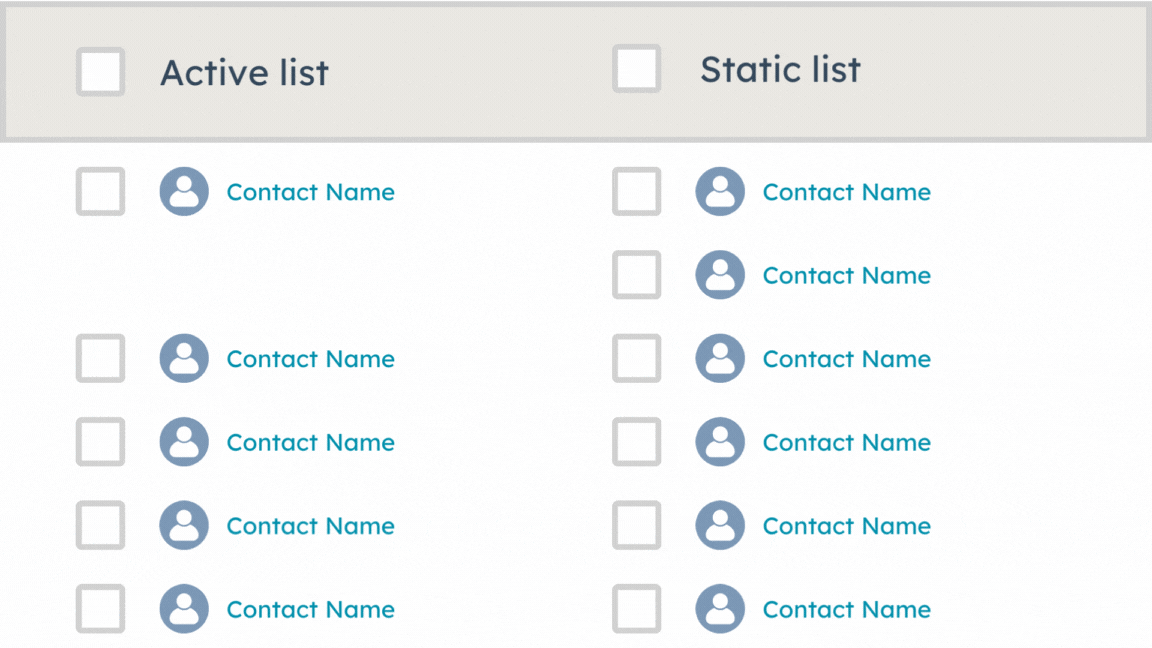While active lists in HubSpot are often used for automated segmentation, static lists remain essential for campaign execution, event coordination, and historical analysis. They offer a reliable way to manage defined groups of contacts based on a specific moment in time or campaign purpose.
Static lists are particularly useful when the list criteria should not change once defined. For example, if you are running a webinar and want to invite only those who expressed interest before a certain date, a static list gives you a fixed record that remains consistent regardless of future activity. This ensures that all campaign tracking and follow-up correspondence reflect the correct group.
To create a static list, navigate to the “Contacts” section in HubSpot, select “Lists,” and then choose “Static list.” You can populate the list manually by selecting contacts or use filters to build the list and then freeze it. Common use cases include:
-
Contact groups for one-time email sends tied to a specific event or offer
-
A baseline list of contacts for A/B testing against an active list
-
A defined audience segment for manual export to a third-party platform
Static lists also support performance analysis after the fact. For instance, by saving a static list of contacts invited to a campaign, you can later compare the influence of that initiative on deal creation, page visits, or engagement metrics without interference from new contact additions.
In sales contexts, static lists can be helpful for managing outbound outreach. Sales teams can work from an assigned list that reflects a known stage or region, without worrying about ongoing reshuffling from changing list criteria.
To keep your instance manageable, archive or delete static lists once they are no longer needed. HubSpot does not automatically remove them, so periodic cleanup helps preserve clarity and efficiency. If a static list plays a long-term role in reporting or campaign review, rename it clearly with a date or purpose reference.
Summary Tip: Use static lists in HubSpot to support fixed-scope campaigns, accurate historical analysis, and controlled outbound engagement.

